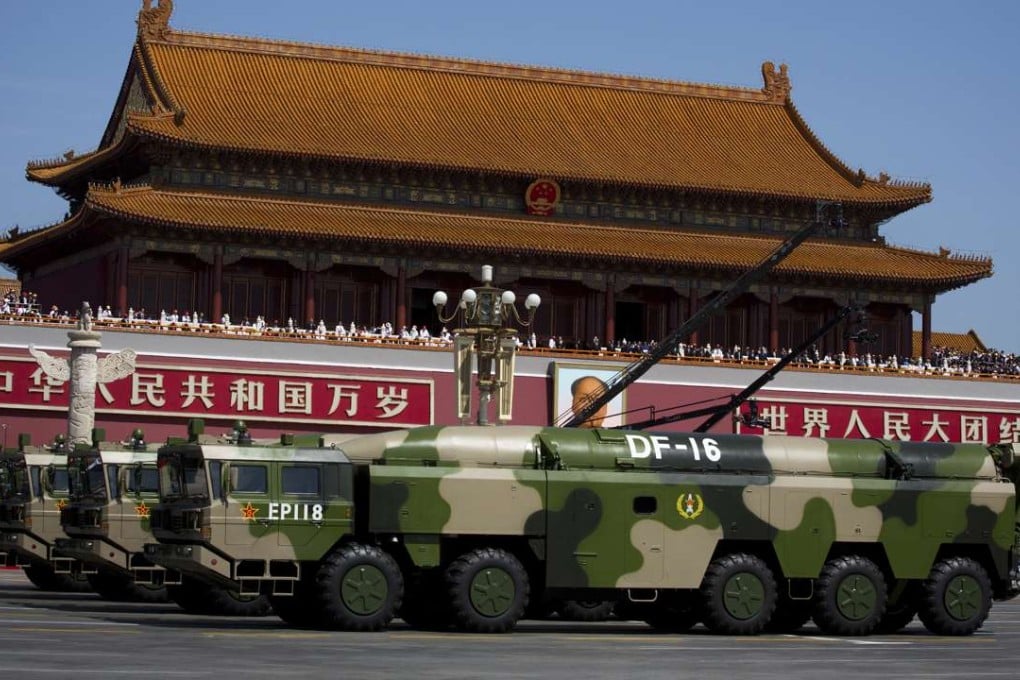Taiwan ‘targeted by mainland China’s top medium-range missiles’
Deployment of DF-16 missiles part of the increased military intimidation of Taiwan by Beijing, according to island’s defence minister

Taiwan’s defence minister confirmed on Monday that mainland China has deployed its most accurate short to medium range ballistic missiles that can launch precision strikes against the island, the Central News Agency reported.
The DF-16 has been deployed by the PLA’s Rocket Force as the mainland steps up its military intimidation against Taiwan, Defence Minister Feng Shih-kuan said.
Feng was speaking to the Foreign Affairs and National Defence Committee in the Legislative Yuan, the island’s legislature.
He gave no further details of where the missiles were deployed, but said Taiwan was confident that it could detect the missile and “has adequate weaponry to shoot it down outside its borders”.
The road-mobile, solid-fuelled DF-16 missile was publicly displayed at a Beijing military parade in 2015 and is believed to have a range of about 1,000km, putting it within striking distance of Taiwan, the Philippines and Okinawa in Japan, home to several US military installations.